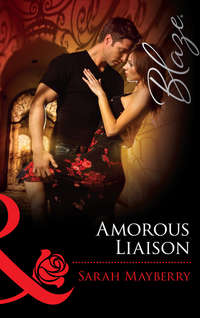
Полная версия
The Christmas Wedding Quilt
Now, as she gripped the steering wheel and gingerly guided the car through deepening snow, she tried to imagine that kind of freedom, that silence. Nobody but Rachel, Ella and her great-uncle, Albert, knew she was here.
Well, that wasn’t quite true. Eric Grant’s parents, who spent winters in Florida, knew. Eric’s mother, Lydia, had given her permission to rifle through the Grant’s lake house attic in search of Eric’s old baby quilts. In a flash of sentiment Jo had decided that incorporating Eric’s childhood into the quilt, along with Olivia’s, would make it even more meaningful. His mother had promised that anything Jo found that was too far gone to save for a grandbaby was fair game for the bridal quilt, and Lydia had promised not to breathe a word of the plan to her son or her daughter-in-law to be.
So Eric’s mom knew, but not her own. Jo had stretched the truth a bit and told Sophie she was on a spiritual retreat and not allowed to reveal the location. That was close enough to the truth that she didn’t feel she’d actually lied.
As for her boss? The only thing Frank Conner knew was that over the Christmas holidays Jo was taking some of the many vacation days the company owed her and would be available by email, but only for emergencies.
The last part was a gamble, but Jo had finally faced the fact that her skills and talents were largely unappreciated by her boss. And wasn’t some of that her own fault? For too many years she had taken Frank’s abuse without comment. It was time he realized how hard it would be to run his consulting firm without her. Even during the holidays, when work tapered off.
She came to a crossroads and slid to a stop, her heart thumping wildly until the wheels stopped spinning. She took a deep breath and carefully made the required left turn, fishtailing just a little, but straightening as she picked up speed.
Twenty minutes later the GPS promised she only had sixteen miles to go. At home sixteen miles meant something less than sixteen minutes, but here she was barely crawling. The same clouds shoveling snow over the landscape had now completely blocked the sun. She saw occasional lights from houses or businesses along the road, but no sign of driveways to reach them.
She wasn’t scared. Not exactly. The road wasn’t a major byway, but eventually there would be traffic. If the worst happened she could pull over—if she hadn’t already run off the road—and wait for a plow or state police car.
An hour later, after skidding three times and one time spinning wildly, she arrived at the turnoff to Hollymeade. At least that was what the friendly GPS was telling her. The only signs of a road were the ridges beside a slightly lower area that might well be the long winding driveway. She wasn’t sure she would recognize the turnoff in bright summer, but she had seen a sign to Kanowa Lake a mile back.
What choice did she have? There was a shape lurking far in the distance, like a monster waiting to pounce.
“Welcome to Hollymeade,” she whispered, as she turned into what she hoped was the driveway.
She was parked in front of the house before she took another deep breath. She couldn’t believe she had made it through the drifts of snow piling higher and higher. But here she was, the familiar old house just waiting for her. She had fought the elements and won. Memories of her childhood summers were in reach. She couldn’t wait to go inside.
Of course part of the reason she couldn’t wait was that cold was already seeping into the car, and the air wasn’t getting any warmer.
She reached for her jacket again, the warmest she owned, and wished she had taken the time to buy a better one. She leaned forward and shrugged into it, zipping it to the top before she opened the door and stepped outside.
Snow immediately filled her boots, which hadn’t been designed for blizzards. She pulled on lightweight leather gloves and grimaced as she opened the rear door and reached for her suitcase and groceries. She wondered how long she could make the three silly candy bars last.
Lifting the suitcase to keep it above the snow she trudged to the front steps, feet already turning numb. By the time she arrived she was winded but cheered. In a minute she would be inside, where she could take off her boots, turn up the heat and make herself a cup of something warm. Then she could explore to her heart’s content, choose a bedroom, make the bed and settle in for the night after a meal of corned beef hash or a bowl of cereal.
Gray canvas awning swaddled the wide front porch to keep the snow outside. She unzipped the doorway and hefted the suitcase in with her, zipping it behind her. Then she rolled the suitcase to the door and leaned it against the wall with her purse and grocery bag.
The vase where the key was hidden was farther from the door than she had anticipated, and the tented porch was so dark she had to feel her way along the wall with one hand to stay steady. But she reached it and lifted the vase.
No key.
She squatted, stripped off her gloves, and searched the floor with her fingertips. Only a cobweb wrapped itself around her fingers in welcome.
“Yuck.” As she stood she wiped her hand on her jeans. She was out of the wind and the snow, but cold was still her enemy. The temperature was probably in the twenties, and her clothes and feet were soaked.
No key, no light. While it was dark outside, it wasn’t this dark. She went back to the door and unzipped it again, tying back the flaps to let in what light she could. Then she carefully walked the length of the porch, lifting various knickknacks, a row of concrete ducklings, a plant stand, checking each for the key. She felt along every shelf on an empty book case at the end, opened the drawer on a small end table between two shiny metal chairs.
No key.
Now she was shivering. She pulled out her cell phone to call her great-uncle for advice, but there was no coverage. Either because of the storm or the rural location, she was on her own.
The town of Kanowa Lake lay beyond the house, perhaps three miles farther. There were other houses around the lake, of course, but most of them were summer cottages, many without heat. Now they were tented and locked tight, pipes drained and electricity turned off until warm weather brought them back to life. Without suitcase or groceries she trudged back down the steps, muddled through a snowdrift and peered into the distance, making a slow circle. Not a single light was visible.
Pushing down panic she considered her options. There were so few, and she was so cold, the process didn’t take long. Only one possibility made sense. She needed to get back up the driveway while she could. If she was lucky a snowplow would come by soon and she could follow it toward town. But that window of opportunity was quickly closing. She wasn’t sure she could turn around, and even then, she wasn’t sure she would make it back down the drive.
She donned her gloves and returned to the porch for her suitcase, groceries and purse, then, when the car had been packed again, went back one more time to snatch a snow shovel leaning against a wall.
The tracks from her car were already filling with snow. She certainly couldn’t back out of the driveway. She saw what looked like a turnaround just ahead of where she’d parked. If it was what it seemed, she could circle and head back up the driveway. But when she got in the driver’s seat and tried to inch forward, her wheels spun. She put the car in Reverse and rocked back a bit, then tried to move forward again. This time she made a little headway, but not enough.
She was about ten feet from the turnaround, which was about ten feet wide and ten feet long. Slamming her palm against the steering wheel she took a deep breath, then got out, grabbed the shovel from the backseat and went around to the front of the car. Her feet felt like they were on fire, and even with gloves, her hands felt cold enough to freeze to the shovel handle.
She worked as quickly as she could, shoveling the snow in front of both front tires. Then she started a track to the turnaround for one set of wheels. The snow was light enough, but she tired quickly. She’d had a long flight from California, a long drive from Buffalo, and now this. Rested and appropriately attired, she would have been more successful. But exhausted, with body temperature plummeting, every shovelful was a Herculean task.
At the turnaround she leaned on the shovel and bowed her head. Even if she was able to finish, would it do any good? Her tracks were almost invisible now. If she was able to move the car and turn it around, would she be able to make her way up the driveway? Then what? The road was probably piled with snow.
She hadn’t heard so much as a car passing, but as she tried to figure out the best option, she heard a distant rumble. Was it a plow? If she floundered through the snow up to the main road could she flag down the driver, explain her predicament, perhaps even get a ride into town?
The rumble deepened and grew louder. Dragging the shovel behind her, in case she needed it, she stomped up the driveway, stopping only for her purse. Ten yards later, ten grueling, numbing yards, she stopped again. Because suddenly she was no longer alone. A snowmobile was coming down the driveway with a lone, helmeted driver.
She wanted to cry from relief until she realized she was in the middle of nowhere in a blizzard with a stranger, and almost nobody knew she was here. Relief turned to apprehension.
The snowmobile pulled to a halt, and the broad-shouldered driver, clothed in appropriate gear, turned off the engine before he hopped down. For a moment he didn’t move; then he reached up and stripped off his helmet to reveal a wool stocking cap beneath it.
“Hello, Jo.”
This man was no stranger, although he was capable of causing a great deal of distress.
She didn’t know whether to laugh or cry. The last time she’d seen Brody Ryan, he had carefully and unemotionally explained the reasons why they couldn’t get married. Now, as then, she didn’t know what to say. She stared speechlessly for what seemed like forever, assessing the way the world seemed to be tilting on its axis. At last she settled for the obvious.
“Brody.”
“I guess ‘long time no see’ is a cliché.”
“What are you doing here?”
He smiled, a smile she remembered too well, creases that were almost dimples in his cheeks, laugh lines fanning out from green eyes.
“I guess I’m rescuing you. Looks to me like you might just need it.”
CHAPTER TWO
AS BRODY TENDED a fire in the living room fireplace, the shower on the second floor screeched to a halt. Jo must be getting out at last.
He tried to put that image out of his mind.
He was glad he had arrived when he did. By the time he’d managed the driveway Jo had been one stick short of a Popsicle, and by the time he’d unlocked the door to let her inside, she had been shivering uncontrollably. There had been no time to talk. He’d sent her right upstairs to shower and put on warm clothes, and he’d busied himself starting the fire, followed by a pot of coffee. There were few provisions in the Hollymeade pantry, but he’d scraped just enough grounds out of a canister for one pot. He knew Jo had brought next to no groceries with her, because once the fire and coffee were going, he’d retrieved her suitcase and a flimsy plastic bag from the car.
Now the suitcase was resting in the hallway outside the bathroom, and the pitiful groceries were resting on the kitchen counter.
His work was done. Jo wouldn’t freeze, and she wouldn’t starve. Yet somehow, he was still in the house, adding kindling to a fire that was already blazing merrily.
He heard footsteps on the stairs, then a voice behind him. “Thanks for bringing in my things.”
When he turned he saw she was wearing fleece from neck to ankle, something soft, warm and a pretty shade of green. He was glad she’d had the good sense to bring at least some weather-appropriate clothing in her sleek little suitcase.
“You look a little warmer,” he said.
“I think I’ve stopped shivering.”
“I made coffee. It’s in the kitchen.”
“Perfect. May I get you some?”
He heard the stiff formality in both their voices. How nice of you. Thank you. What can I do? He knew better than to sigh, because what had he expected? That the woman who had been pathetically grateful when he called off their engagement all those years ago would throw herself into his arms tonight?
“I take it black,” he said.
“You never used to.” She immediately looked chagrined, as if remembering a simple preference opened doors.
He examined a speck on the wall to avoid her eyes. “I don’t have time to pretty it up anymore.”
“I guess...well, it’s obvious you still live in the area.”
He wasn’t surprised she hadn’t known. From what he’d heard, she hadn’t been to Kanowa Lake in years. And whenever he had casually asked about her, nobody in the Miller family seemed to have news. Clearly she had never asked about him.
“In the house where I was raised,” he said.
“Your father still has vineyards?”
He took too long to answer. She didn’t know that, either, but—he guessed for a number of reasons—this time he was grateful. “He died. I care for them alone now.”
“Oh, I’m so sorry.”
He thought she probably was. His father had liked Jo, and so had his mother. He was pretty sure the feeling had been mutual. Of course nobody, not his parents, not her family, especially not her mother, had ever known how serious they were about each other, how they had planned to marry after they finished school, how they had chosen universities close enough that they could spend long weekends together.
That in his senior year the whole flimsy house of cards had tumbled to the ground.
“So I stayed a local boy,” he said. “What about you?”
“After I got my master’s degree I moved back to California. I’m a systems analyst with a consulting firm in San Diego.” After clipping the words as short as a boot-camp haircut, she left for the kitchen, and he gave the fire one more poke for good measure before she returned with coffee, handing him the mug, handle turned for him to grasp.
“I couldn’t get inside,” she said. “When I arrived, I mean. That’s why I was shoveling the driveway, so I could turn around. The key wasn’t where Great-Uncle Albert said it would be. I was about to head to town.”
“The key’s been in the same place as long as I can remember. The concrete vase by the back door.”
“Back door.” She shook her head. “I missed that part, I guess.”
“You never would have found it. By now that vase is probably buried. I doubt anybody expected you to arrive in a blizzard.”
“You seem to have expected it.”
“I heard you were coming. I manage a bunch of properties around the lake in the wintertime, and I thought I ought to check, just in case you didn’t know any better than to ignore a storm warning.”
She didn’t seem to take offense. “It’s a different world here in the winter. But I should have known better. I just wanted...”
“To be here?”
“It’s been a long time.”
“I heard about your aunt. I’m sorry she’s gone.”
“Me, too.”
Brody realized he hadn’t taken a sip. Instead he had been drinking in Jo’s lovely, familiar face. Her hair had been longer the last time he’d seen her. Now straight and shiny, it just touched her collar. The oval face, dark brows and lashes and straight nose were the same. So was the wide mouth that once had smiled so easily.
Not so much anymore.
“You probably need a good night’s sleep.” He held up his mug. “And I probably can’t drink this fast enough. Maybe I ought to just go.”
Instead of answering she settled on one of the love seats flanking the fieldstone fireplace and motioned him to the other.
“I still have to warm up hash for dinner, and I’m on California time. Keep me company a few minutes, unless somebody at home is expecting you?”
He thought she had managed that neatly. Was there a wife? Kids?
“In the winter I’m here alone,” he said. “Mom goes to Arizona to stay with Kaye. She and her family live outside Phoenix. It gets Mom out of the cold, and she loves being there.”
“How are they? Your mom and Kaye? Kaye was only, what, sixteen when—” She stopped herself. “She must be, what, twenty-six or so, yes?”
“Happily married, with a two-year-old and another on the way. Mom babysits while Kaye’s at school. She teaches third grade. How about your mom?”
She seemed to relax a little, even smiled. “Still wacky after all these years. Sophie’s on her third marriage, but my stepfather is remarkably patient, adamant she stay on her meds, and madly in love with her. Plus he has money, which means she’ll try harder. I think this one might stick.”
“Does that let you off the hook a little?” He realized how personal the question was, how much it said about how well they had known each other, but it was too late to call it back.
“I’m allowed to have my own life, yes.”
In for a penny, in for a pound. “Does that include a family?”
“I’m not married, if that’s what you’re asking.”
He had always liked the way Jo laid her cards on the table. Of course in contrast, there was another part of her that carefully played the rest of her hand close to the chest. Anything really important stayed deep inside her, but that habit had suited him, since he operated the same way. For survival she had been required to keep a part of herself from her mother. Brody’s traditional upbringing and parents had been very different, but as a boy he had realized that they had many burdens and didn’t need his, as well.
“So why did you come back?” he asked. “At Christmas, too. There must be a hundred better places to spend the holidays.”
She launched into a story about her cousin Olivia’s bridal quilt, her own desire to get away for a while and work on her part of it in peace, and a desire to see if she might find some baby quilts or clothing of Eric’s in the Grants’ attic.
She finished up on that note. “If I was going to do this, I wanted to do it right. I thought the quilt would be that much more special if we had some of Eric’s childhood quilted into it, too. Lydia says there are boxes in their attic I can go through. Once I’m settled I’m supposed to call her about a key. Then I’ll go through them until I find what I’m looking for.”
“I have the key. I look after the Grants’ house, too.”
Jo leaned back. “Well, you’re a busy boy, aren’t you? Nothing to do in the vineyard this time of year?”
“I have a bargain with the owners. For a nominal fee I watch their houses in winter, and in the fall they come to my place and pick grapes. We make quite a party out of it.”
“You don’t have machines for that?”
“We harvest the juice grapes by machine, but these are more fragile. Vignoles grapes for wine.”
“I always loved seeing all those acres of grapes.”
“And eating them. The summer we met.”
She had been smiling, but that died now. “You know, Pacific time or not, I really am wiped.”
He had been dismissed, so he stood. “The snow’s going to continue through the night. You have some staples in the pantry, a little flour, sugar, salt, that sort of thing, along with some canned soup. But not a lot else. It might be some time before you can shop. I’d ration.”
“Uncle Albert said somebody plows the driveway after it snows.”
“That would be me. But not until the snow stops long enough for it to make sense.”
She uncurled her legs and gracefully rose to follow him to the door. “Thank you for the fire and coffee.” She stuck out her hand.
Surprised, he took it, but the contact was brief. “What are old friends for?”
“I guess we were friends, weren’t we?”
“Maybe we can be again.”
When she didn’t respond he smiled, as if the lack didn’t matter, as if friendship went without saying when, of course, it was probably impossible.
More things left unsaid, their mutual talent.
“Be sure to close the doors on the fireplace before you go to bed,” he said. “The chimney’s just been cleaned, so it’s safe enough, but that’s a hot fire. You don’t want any sparks popping into the room.”
“Thanks, I have a fireplace in my condo.”
“Then you’re an expert.”
She tilted her head. “At lots of things. I’ve been taking care of myself for a very long time.” She paused. “But thank you for taking care of me tonight. I’m not sure where I would be right now if you hadn’t come along.”
He considered those parting words on his way home. She had been talking about tonight and where she would have been without his help. But Jo was a survivor. She would have found a way to keep from freezing even if she’d been forced to dig out the whole driveway to get back on the road.
Now he wondered where she would be if he had never come along at all, if he had never met her the summer she turned sixteen, if they hadn’t made a thousand plans together, all canceled summarily four years later. Had she stopped trusting men after that? Was that why she’d never married? Had she stopped coming to Hollymeade because she had been afraid of running into him? How many choices had she made that stemmed from their past?
How many had he made?
He found himself at the Grants’ house instead of his own. It was more than six miles from Ryan Vineyards, so he hadn’t simply made a wrong turn. No, the wrong turn had come a long time ago. Now there was no telling where this one might lead.
He jumped down and went through his ring of keys on the way to the front door. Inside he took the steps upstairs and then those to the attic two at a time. The Grant house wasn’t as large or lovely as Hollymeade, but it was a pretty Colonial with banks of windows looking over the water and decks all around, well cared for and loved.
Unlike Hollymeade this house wasn’t heated in the winter, and right now the inside temperature was as cold as the outside. He kept his gloves on until he had reached his destination, a pile of boxes in the front. He knew right where they were because he had helped Eric’s father move them to this spot. He’d been impressed at how carefully each one had been labeled, in case the contents were ever needed again.
He spotted the one he was looking for and began to stack the rest along the side until he could get to it.
“Eric’s baby things.” He grimaced at the label and shook his head, but not at the words, at himself for thinking this was a good idea.
He almost left it where it was, but in the end, he carried it across the attic to a pile of boxes that hadn’t yet been sorted, a pile Lydia Grant was probably making her way through each summer.
When he left the house, the box with Eric’s baby things was stored in the very back of the Grants’ attic, six down on an unmarked pile, the label turned toward the wall. It was the least likely place anyone would look for it.
It might buy him the time he needed to get to know Jo again.
CHAPTER THREE
HOLLYMEADE STILL LOOKED much the same. After a breakfast of cold cereal Jo wandered the rooms, a cup of tea from the only tea bag in the house warming her hands. Some things had changed, though. The walls in the living area were a different color now, a silvery sage, and the sofas were new. The armchairs, though? Those she remembered from afternoons curled up with Shel Silverstein’s The Giving Tree or Madeleine L’Engle’s A Wrinkle in Time, even if the chairs now wore slipcovers.
The kitchen had newer appliances, and someone must have decided that updated laminate countertops were a worthwhile investment. But the pot rack with its copper-bottomed saucepans still hung near the stove. And while the curtains had to be new, they mimicked the ones she remembered, gauzy white and tied back to let in the light.
She was home.
Outside the snow continued, and now it was nearly as high as the windows. Of course there must have been snow on the ground already. Western New York was famous for the stuff. Jo couldn’t believe she had gambled on reaching the grocery store today. But there would be no road trip, not until the skies cleared. While she was still in bed she’d heard a plow on the main road, but she doubted it was easy to travel.









